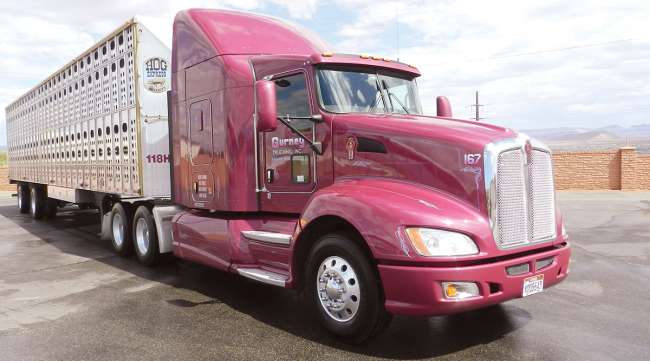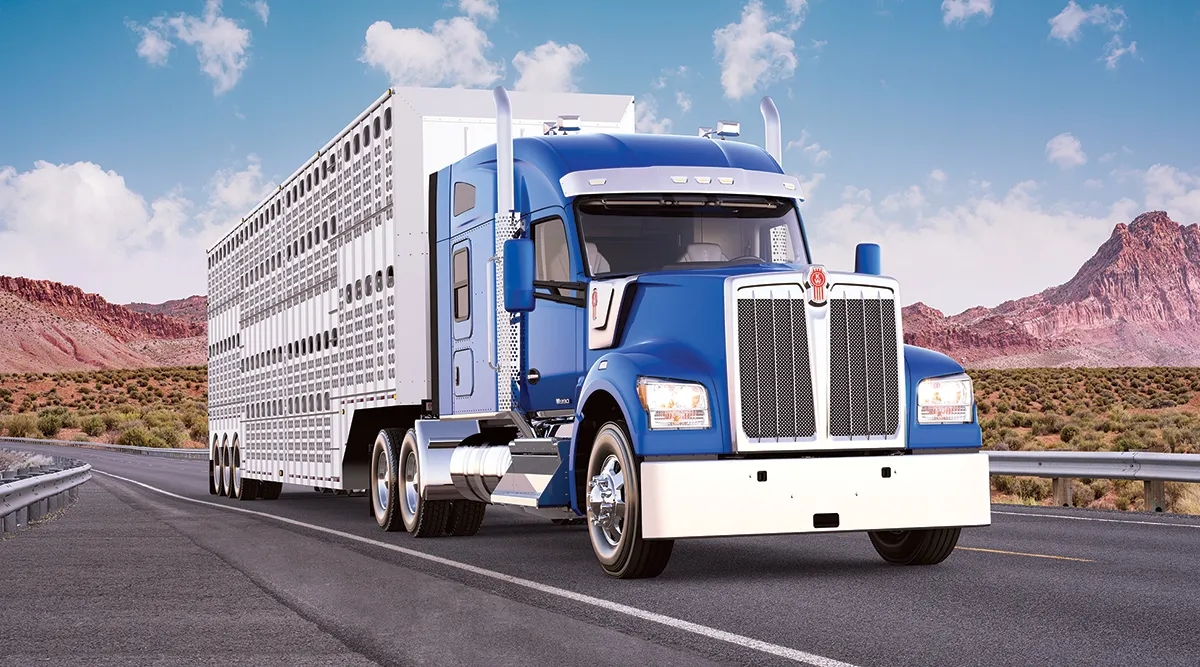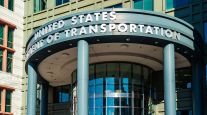Senior Reporter
FMCSA Denies Livestock Haulers HOS Exemption

[Stay on top of transportation news: Get TTNews in your inbox.]
Federal trucking regulators have denied a joint application request for an exemption that would allow truckers transporting livestock, insects and aquatic animals to drive a total of 15 hours during the 16-hour period following 10 consecutive hours off duty.
The joint exemption request, first announced publicly in February 2019, was made by the National Cattlemen’s Beef Association, Livestock Marketing Association, American Farm Bureau Federation, American Beekeeping Federation, American Honey Producers Association and National Aquaculture Association.
“The Federal Motor Carrier Safety Administration analyzed the application and public comments and has determined that the exemption would not achieve a level of safety that is equivalent to, or greater than, the level that would be achieved absent such exemption,” the agency announced Nov. 29.
The livestock haulers said they are currently permitted to operate in “an exempt zone within a radius of 150 air miles” of the source of an agricultural commodity.
The requesters said that their drivers would comply with all other hours-of-service rules, including the 60/70-hour limits.
“They advise that drivers operating under the proposed exemption would reach the 60-hour on-duty limit as early as the end of the 90th hour and would then take 34 consecutive hours off duty,” the FMCSA Federal Register announcement said. “Then they could resume duty at the start of the 125th hour.”
The exemption requesters said that the 11- and 14-hour rules were not crafted with livestock haulers in mind, and “thus do not accommodate the unique character of their loads and nature of their trips.”

FMCSA said research demonstrates that long work hours reduce sleep and harm driver health, and that crash risk increases with work hours. (Paccar Inc.)
The haulers’ request noted that in certain circumstances, livestock transporters are required to carry live animals over significant distances and the circumstances are “dictated by factors primarily related to the health and welfare of the livestock, the lifecycle of the livestock, and the locations of farms and ranches, viable grazing lands and feedlots, and final processing facilities.”
The applicants argued that the maximum driving and on-duty limits of the HOS regulations as applied to their operations may place the well-being of livestock at risk during transport and impose significant burdens on livestock haulers.
“These trips are affected by ‘immutable factors’ such as weather,” the haulers said.
In addition, transportation of bees necessary to pollinate numerous crops, tree nuts, fruits and vegetables requires some of the longest trips in the country. The applicants estimated that 25% to 30% of livestock-hauling trips would be conducted under the requested exemption.
“Livestock haulers transport animals from farms and ranches to auction markets, where the stock is sold,” the haulers said. “Once sold, the animals are often transported to grazing lands and feed yards, mostly located in the Central Plains and Southwest. After grazing and feeding, livestock are transported a final time to processing facilities, where they are transformed into consumable meat and sold.”
But FMCSA countered that research studies demonstrate that long work hours reduce sleep and harm driver health, and that crash risk increases with work hours.
“The HOS regulations impose limits on when and how long an individual may drive, to ensure that drivers stay awake and alert, and to reduce the possibility of cumulative fatigue,” the agency said. “As stated by opponents of the exemption, livestock haulers have been required to operate within the confines of the HOS regulations for over 80 years.”
FMCSA said it received 359 total sets of comments on the request — 43 of them opposed, including the National Transportation Safety Board, Commercial Vehicle Safety Alliance, Truckload Carriers Association, Iowa Motor Truck Association, and the Animal Welfare Institute. For example, Iowa’s trucking group said that livestock haulers should be held to the same HOS standards as the rest of the industry. “If these loads require the truck to keep moving due to the live animals on the truck or trailer, and the run can’t be completed within the normal 11 hours of driving, then the carrier should be required to put a team of two drivers into the vehicle,” it said.
Want more news? Listen to today's daily briefing above or go here for more info
Livestock are already exempt from hours regulations when running within a 150-mile radius and from the requirement to operate electronic logging devices, Iowa Motor Truck Association added.
CVSA said the exemption request is both unjustified and impractical.
Of the 294 comments in support of the request, 52 were filed by state trucking associations related to livestock and cattlemen, including comments from all the original applicants.
The remainder of the supporting comments were from individuals and trucking companies, primarily those hauling livestock, FMCSA said.




